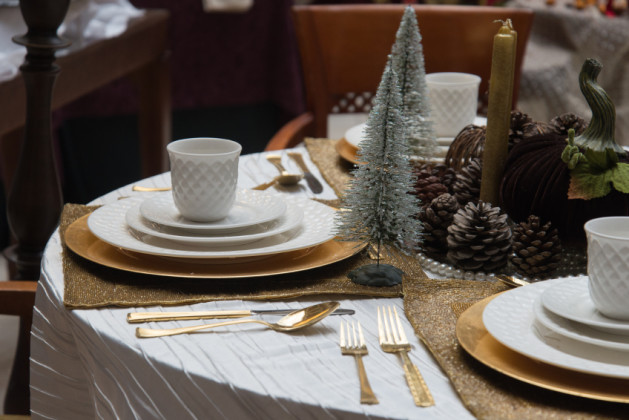Having a spouse or a child is not the thing that makes a person a grown-up; putting other people’s needs ahead of your own is.
After I asked readers to describe their feelings about the holidays, many expressed frustration. They wrote of nosey relatives who grilled them about their romantic lives, of being relegated to air mattresses while married siblings received guest-room accommodations, and of wanting to vaporize during New Year’s Eve kisses.
But perhaps the largest source of grief was the simple understanding that a time that is supposed to bring joy so often brings pain instead.
The holidays can have a time-lapse quality. You frequently hang out with people you see only once a year or so—cousins, uncles, high-school pals, family friends. As the years tick by, you notice that some very obvious things in their lives start changing, as gradually your peers begin bringing home partners and later children. This can make a single, childfree person feel like her life hasn’t budged.
Many readers also said that the holidays often make them feel like kids, as they’re still defined primarily as sons or daughters, rather than husband or wives, fathers or mothers.
I experienced all of those complicated emotions for many years, and it was hard. But I gradually came to see that my life was moving forward, just not in a way that was apparent at a holiday dining table. A short story I’d published in a literary magazine was not going to command the same attention as a family friend’s new baby; my solo trip to Thailand wasn’t going to garner as much conversation as a family wedding.
At first this frustrated me, but then I realized it was OK. I’d be back to my regular life soon enough. More importantly, if I wanted to feel like an adult, trying to get people to praise and acknowledge me was exactly the wrong way to do it.
In other words, I realized that having a spouse or a child is not the thing that makes a person a grown-up; putting other people’s needs ahead of your own is. And that impulse has nothing to do with your relationship status or whether or not you’re the official host of the event. All you have to do is shift the attention from yourself to others. For example:
- Listening to your great-aunt brag about her grandchildren
- Asking your grandfather about his childhood
- Picking up people at the airport
- Taking people’s coats
- Making sure everyone has a drink
- Doing the dishes
- Making the mashed potatoes
- Complimenting your cousin’s engagement ring
Some of these things might sound harder than others, and many are probably things you already do. But for me, that simple shift—thinking more about other people’s good time than my own—was transformative. It took both the pressure and the self-loathing away, as it’s very difficult to feel bad about yourself when you’re being good to others.
I also realized that self-consciousness is a form of self-absorption, since most of my dining companions weren’t sitting around wondering why I was single. They were wondering when it would be OK to ask for seconds, what kind of pie we were having, and whether or not they should get on the road before the snow hit.
I was lucky. I never dealt with obnoxious questions or people acting like I had a “disease,” as some readers have reported. If this is your situation, the challenge will probably be greater, but why not take it? The goal is not to change anyone else’s mind about you. The goal is to cultivate self-respect.
That’s not always easy, especially in a culture that is frequently very disrespectful to single people. But the principle behind it is quite simple: Think about the way a person you respect behaves, and then do that.
Sara Eckel is the author of It’s Not You: 27 (Wrong) Reasons You’re Single. You can get a free bonus chapter of her book at saraeckel.com. You can also find her on Twitter and Facebook.
This originally appeared on eHarmony. Republished here with permission.
Related Links:

